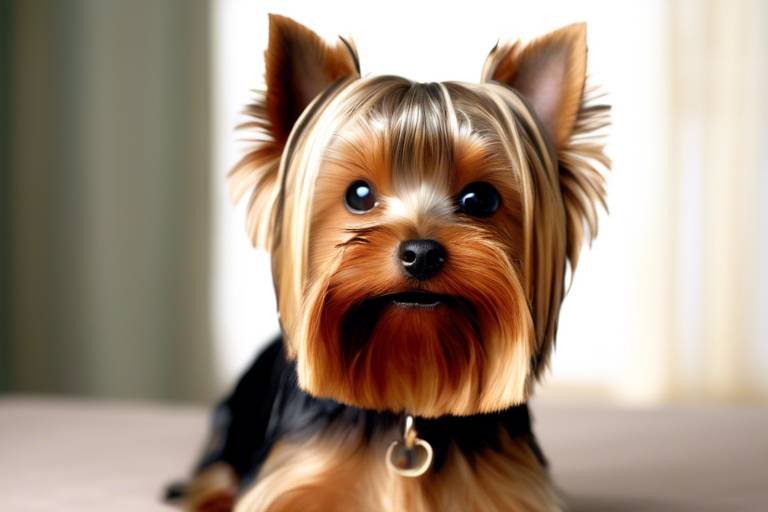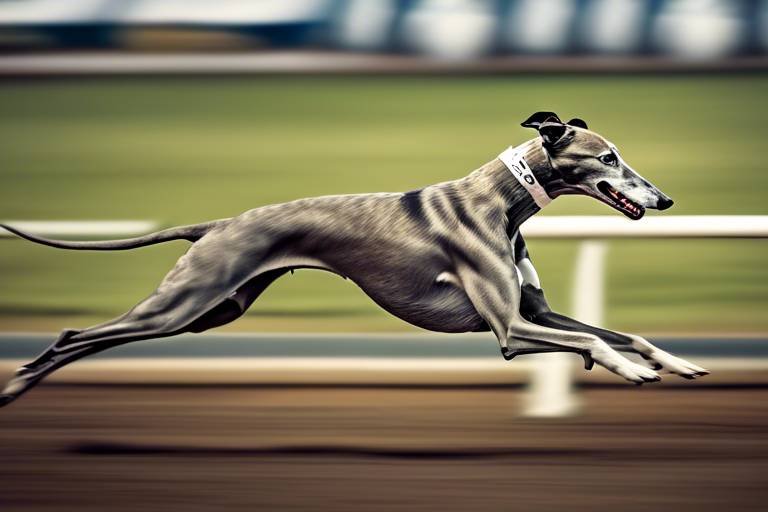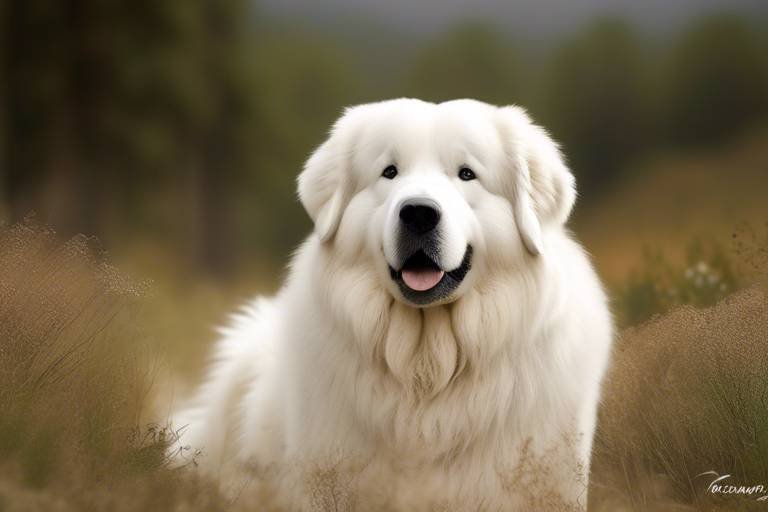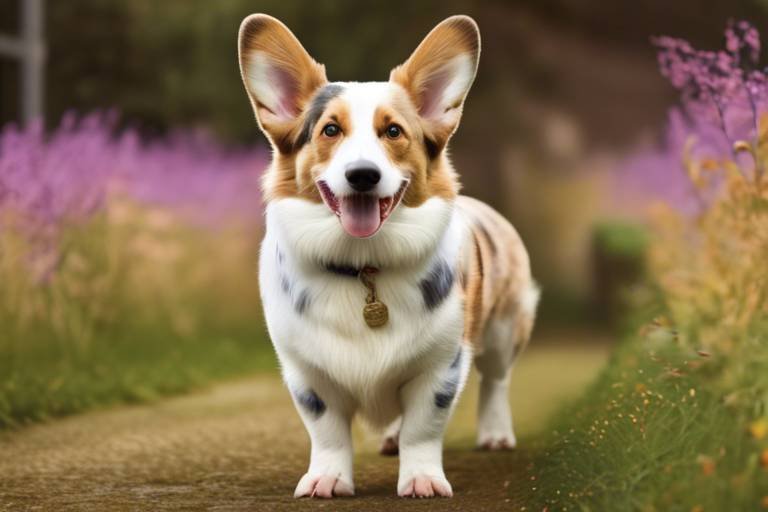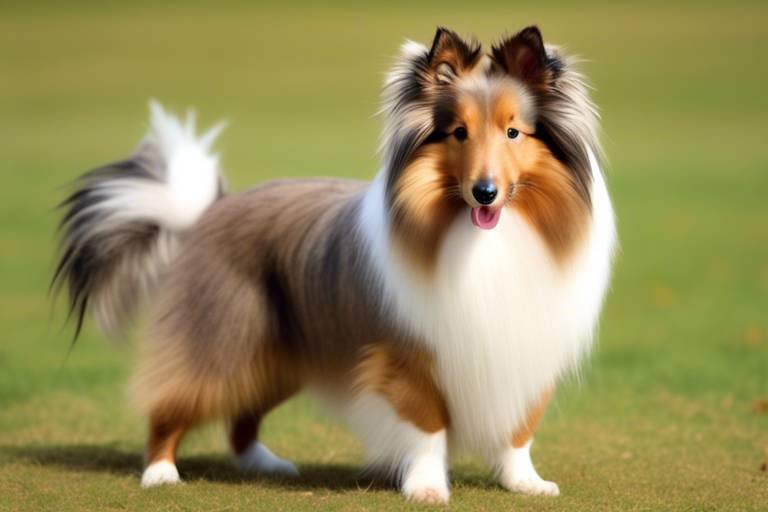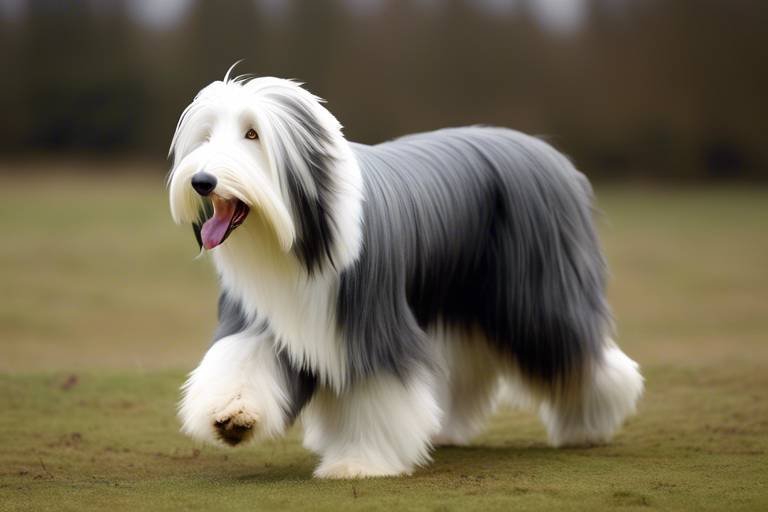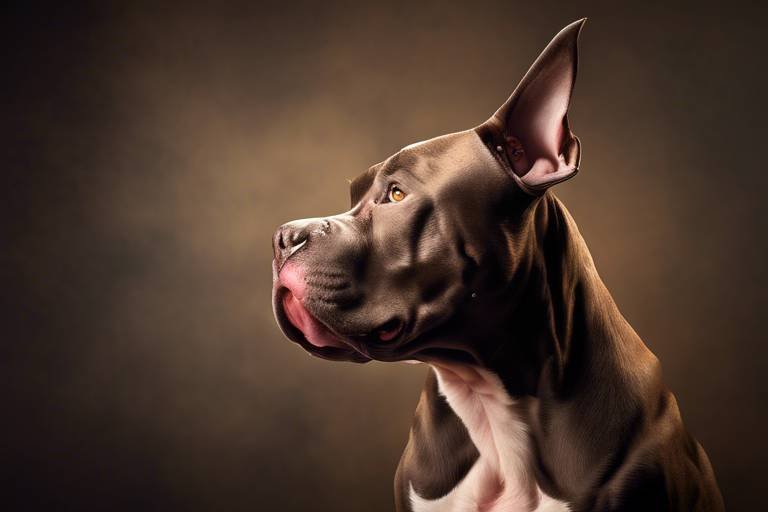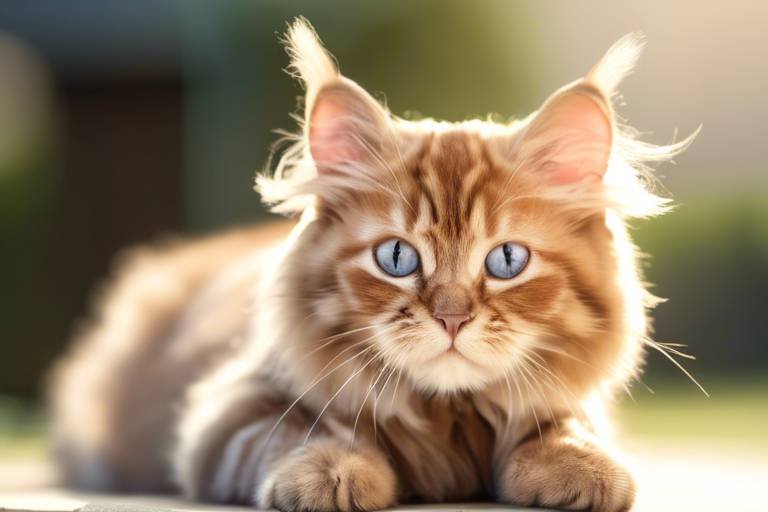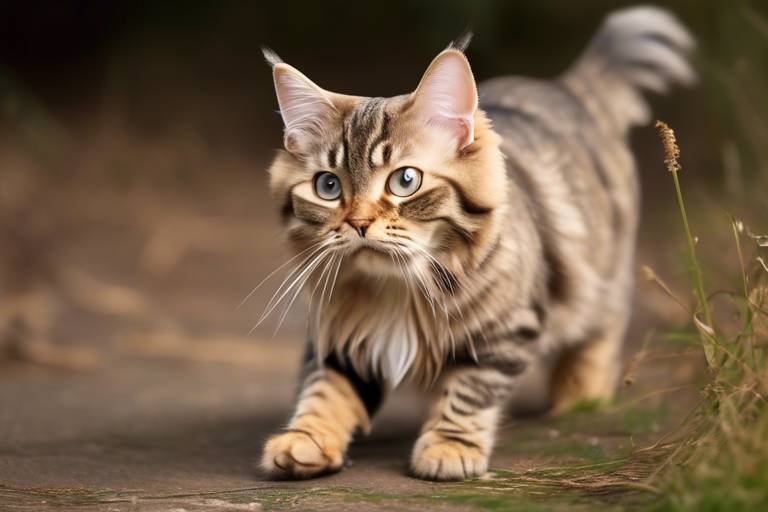The Traits of the Yorkshire Terrier - A Spunky Companion
Yorkshire Terriers, affectionately known as Yorkies, are more than just a pretty face; they embody a unique blend of characteristics that make them one of the most beloved dog breeds around the world. Their vibrant personalities and spunky demeanor have captured the hearts of many dog lovers, making them not only delightful companions but also loyal friends. In this article, we will delve into what makes these little furballs so special, from their personality traits to their physical characteristics, behavioral quirks, and essential care needs.
Yorkshire Terriers are renowned for their boldness and confidence. Despite their small size, they have a larger-than-life attitude that can light up any room. Their intelligence shines through as they learn commands and tricks quickly, often impressing their owners with their cleverness. But, as with many intelligent breeds, this can lead to a bit of a stubborn streak. If you've ever encountered a Yorkie, you might have noticed their playful nature; they love to engage in games, chase after toys, and even participate in some cheeky antics that will leave you in stitches. This combination of traits makes them a perfect match for families, singles, and anyone looking for a companion that brings joy and laughter into their lives.
When it comes to appearance, Yorkshire Terriers are instantly recognizable due to their long, silky fur and petite stature. Typically classified as a toy breed, these little dogs weigh between 4 to 7 pounds, making them an ideal choice for those living in apartments or smaller homes. Their compact size allows for easy transport, whether you're heading out for a walk or a trip to the vet.
The small size of Yorkies is not just a physical characteristic but also plays a significant role in their personality. They often think they are much larger than they are, exhibiting a fearless attitude when interacting with other dogs. This can lead to some amusing situations, especially when they try to assert their dominance over much larger breeds!
The Yorkie's coat is a stunning combination of blue and tan that requires regular grooming to keep it looking its best. Without proper care, their hair can become matted, which is not only unsightly but can also cause discomfort for your furry friend. Regular brushing, at least a few times a week, is essential to maintain their luxurious locks and keep their skin healthy.
Yorkshire Terriers have large, expressive eyes that seem to communicate a world of emotions. Their erect ears add to their charm and enhance their alertness, making them excellent watchdogs. Despite their small size, they have a keen sense of awareness and are quick to alert their owners to any unusual activity. It's almost as if they take their guarding duties very seriously!
Behaviorally, Yorkies are known for their spirited nature. They are naturally curious and energetic, often exploring their surroundings with enthusiasm. However, this energy can sometimes lead to stubbornness, especially when they decide they would rather not follow a command. Consistent training and socialization from an early age are crucial in shaping their behavior and helping them become well-rounded companions.
Training a Yorkshire Terrier can be a rewarding experience, especially when using positive reinforcement techniques. They respond well to treats and praise, making it easier to teach them new commands. Consistency is key; regular training sessions help curb any stubborn tendencies and reinforce good behavior. Socialization is equally important; exposing your Yorkie to different environments, people, and other pets can help reduce anxiety and build confidence.
Obedience training should start as soon as you bring your Yorkie home. Simple commands like "sit," "stay," and "come" can be taught through fun and engaging methods. Remember, patience is vital. If you find yourself feeling frustrated, take a step back and try again later. The bond you create through training will be incredibly rewarding.
To foster a well-adjusted Yorkie, consider the following socialization tips:
- Introduce your Yorkie to various people, including children and seniors.
- Arrange playdates with other dogs to encourage friendly interactions.
- Take them on different outings, like parks or pet-friendly stores, to expose them to new sights and sounds.
While Yorkshire Terriers are generally healthy, they are prone to certain health issues that every owner should be aware of. Regular veterinary check-ups, a balanced diet, and routine exercise are essential for keeping your Yorkie in tip-top shape.
Some common health concerns for Yorkies include:
- Dental Problems: Their small mouths can lead to overcrowding, making dental care crucial.
- Patellar Luxation: This condition can affect their mobility, so regular vet visits are important.
- Liver Shunts: Awareness and preventive care can help manage these conditions effectively.
To ensure your Yorkshire Terrier lives a long and healthy life, focus on preventive care. Routine dental care, vaccinations, and a nutritious diet are vital components of their health regimen. Additionally, regular exercise is essential for maintaining their physical health and preventing obesity, which can lead to other health issues.
Q: How often should I groom my Yorkshire Terrier?
A: Ideally, you should groom your Yorkie at least once a week to prevent matting and keep their coat looking beautiful.
Q: Are Yorkshire Terriers good with children?
A: Yes, Yorkies can be great companions for children, but supervision is necessary to ensure both the child and the dog interact safely.
Q: Do Yorkies require a lot of exercise?
A: While they are small, Yorkies are energetic and need regular exercise, such as daily walks and playtime, to stay healthy and happy.
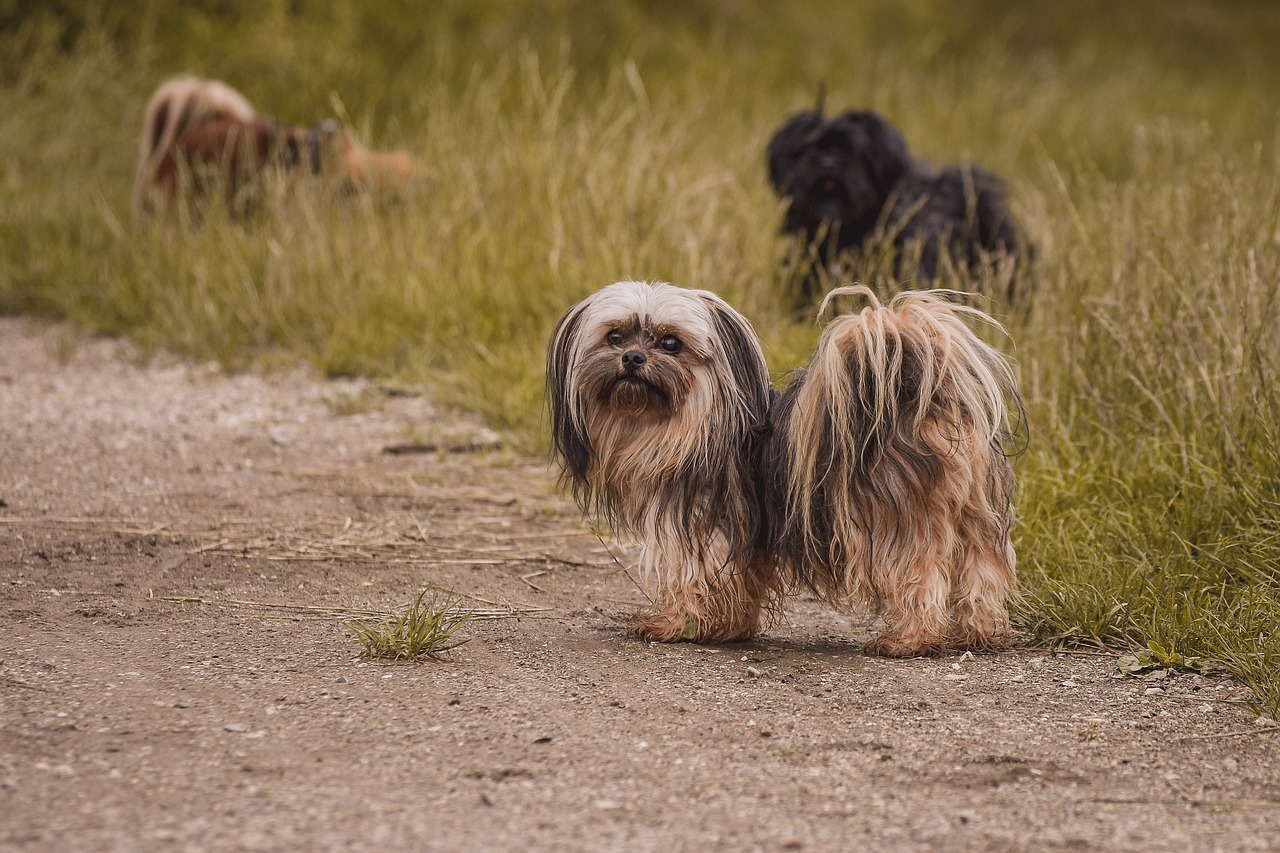
Yorkshire Terriers, fondly known as Yorkies, are not just your average toy dog; they are a bundle of energy wrapped in a small, furry package. With their vibrant personalities, these little companions bring a unique charm to any household. One of the most striking traits of a Yorkie is their confidence. Despite their diminutive size, they carry themselves with an air of self-assuredness that can be quite impressive. You might even say they possess a larger-than-life attitude! This confidence often leads them to be fearless, sometimes to the point of challenging much larger dogs, which can be both amusing and alarming.
In addition to their confidence, Yorkies are incredibly intelligent. They are quick learners, which makes them suitable for various activities, from agility training to simple obedience commands. However, this intelligence also comes with a hint of stubbornness. If they sense that they can get away with something, they might just do it! This is where consistent training becomes essential. Think of training a Yorkie like trying to convince a toddler to eat their vegetables; it requires patience, creativity, and the occasional bribe!
Another delightful aspect of their personality is their playfulness. Yorkies love to engage in playful activities, whether it’s chasing after a toy, playing hide-and-seek, or simply running around the house like a tiny tornado. Their playful nature makes them fantastic companions for families, as they can keep children entertained for hours. Plus, they thrive on human interaction, often seeking attention and affection from their owners. A Yorkie will not hesitate to curl up in your lap or nuzzle against you, reminding you that they are not just pets but family members.
However, it’s essential to remember that Yorkies are also quite vocal. They have a tendency to bark, which can be both a blessing and a curse. On one hand, their barking makes them excellent watchdogs; they will alert you to any unfamiliar sounds or visitors. On the other hand, their vocal nature can become a nuisance if not properly managed. A well-trained Yorkie can learn when to be quiet, but it takes patience and dedication from their owner.
Overall, the personality traits of Yorkshire Terriers make them an ideal choice for many dog lovers. They are lively, affectionate, and full of surprises, ensuring that life with a Yorkie is never dull. Whether you’re looking for a playful companion or a loyal friend, Yorkies are sure to fit the bill. Just be prepared for their spunky attitude and the joy they bring into your life!

Yorkshire Terriers, affectionately known as Yorkies, are a breed that captures hearts with their distinctive physical traits. Standing at just about 7 to 8 inches tall, these little bundles of joy are classified as toy dogs, which means they pack a lot of personality into a tiny frame. Weighing typically between 4 to 7 pounds, their small size makes them perfect companions for those living in apartments or homes with limited space. Imagine carrying a little ball of fur that fits snugly in your handbag — that’s the Yorkie experience!
One of the most striking features of the Yorkshire Terrier is their long, silky coat. This luxurious fur is a beautiful blend of blue and tan, giving them an elegant appearance that often turns heads. However, this stunning coat requires regular grooming to prevent matting and to maintain its luster. Many Yorkie owners find joy in the grooming process, almost like a bonding ritual with their furry friend. Regular brushing not only keeps their coat looking fabulous but also helps to strengthen the bond between pet and owner.
Yorkies are indeed classified as toy dogs, and their petite size is one of the many reasons they are so beloved. Their lightweight build makes them easy to carry around, which is perfect for those who love to take their pets along on adventures. Whether you're heading to the park or just running errands, a Yorkshire Terrier can be a delightful companion without being a burden.
The coat of a Yorkshire Terrier is not just beautiful but also a defining characteristic of the breed. The blue and tan color scheme is not only eye-catching but also represents the breed's heritage. To keep their coat in top condition, owners should invest in quality grooming tools and consider professional grooming every few months. This attention to grooming not only enhances their appearance but also contributes to their overall health.
Yorkshire Terriers are adorned with large, expressive eyes that seem to communicate a thousand emotions. Their eyes are not just for show; they enhance the breed's alertness, making them excellent watchdogs despite their small stature. Additionally, their erect ears add to their charm and contribute to their keen sense of hearing. It's fascinating how such small creatures can possess such a big personality, isn't it?
In summary, the physical characteristics of the Yorkshire Terrier are what make them so unique and endearing. From their tiny size and luxurious coat to their expressive features, these dogs are truly a sight to behold. They embody the perfect blend of beauty and spunk, making them an ideal choice for dog lovers looking for a companion that’s both lively and adorable.
Yorkshire Terriers, affectionately known as Yorkies, are classified as toy dogs, which means they are small in size but big in personality. Typically, these delightful companions weigh between 4 to 7 pounds. Their compact stature makes them a perfect fit for those living in apartments or smaller homes, as they don’t require much space to roam around. Imagine carrying a little bundle of joy in your arms, ready to explore the world with you!
One of the great things about Yorkies is their versatility. Whether you’re taking a quick trip to the local café or heading out for a long walk in the park, their small size allows for easy transport. You can pop them into a stylish bag or let them trot alongside you on a leash. This adaptability is one of the reasons why Yorkies have become such popular companions for busy city dwellers.
Despite their petite size, these little dogs have a larger-than-life attitude. They often think of themselves as much bigger than they actually are, which can lead to some amusing situations. Their confidence can sometimes make them prone to barking at larger dogs, showcasing their fearless nature. It’s this spunky attitude that makes them not just pets, but true companions who bring joy and laughter into our lives.
To give you a better understanding of their size, here’s a quick comparison table that highlights the average weight ranges of Yorkshire Terriers:
| Age | Weight Range |
|---|---|
| Puppy (up to 6 months) | 2 - 4 pounds |
| Adult (6 months - 2 years) | 4 - 7 pounds |
| Senior (2 years and older) | 4 - 7 pounds |
In conclusion, the Yorkshire Terrier’s small size and light weight make them a wonderful choice for those looking for a lively and loving companion. Their ability to adapt to various living situations, combined with their spirited personality, truly sets them apart in the canine world. Whether you’re a seasoned dog owner or a first-time pet parent, Yorkies can easily fit into your lifestyle and become an integral part of your family.
- How much exercise do Yorkshire Terriers need?
Yorkies typically require about 30 minutes of exercise each day, which can include walks, playtime, or even indoor activities.
- Are Yorkshire Terriers good with children?
Yes, Yorkies can be great companions for children, but supervision is important to ensure interactions are safe and positive.
- How often should I groom my Yorkshire Terrier?
Regular grooming is essential, ideally every 4-6 weeks, to keep their coat healthy and free of mats.
- Do Yorkshire Terriers bark a lot?
Yorkies are known to be vocal, especially if they sense something unusual in their environment. Training can help manage excessive barking.
This article explores the unique characteristics of Yorkshire Terriers, highlighting their personality, behavior, and care needs, making them an ideal choice for many dog lovers.
Yorkshire Terriers are known for their vibrant personalities. They exhibit confidence, intelligence, and a playful nature, making them delightful companions for families and individuals alike.
With their long, silky fur and small stature, Yorkshire Terriers are easily recognizable. Their distinctive appearance contributes to their popularity as both pets and show dogs.
Yorkies are classified as toy dogs, typically weighing between 4 to 7 pounds. Their compact size makes them suitable for apartment living and easy to carry.
The Yorkshire Terrier's coat is one of its most striking features. With a luxurious blend of blue and tan, their fur not only looks stunning but also requires regular maintenance to keep it in top shape. The blue coloration usually covers the back, while the tan is prominent on the face, chest, and legs. This unique combination is what makes Yorkies stand out in any crowd.
To maintain their beautiful coat, regular grooming is essential. This includes:
- Brushing: Daily brushing helps prevent tangles and mats.
- Bathing: A gentle shampoo should be used to keep their coat clean and shiny.
- Trimming: Regular trims can help manage the length of their fur and keep their appearance neat.
Moreover, the texture of a Yorkie's coat is quite unique; it is fine and silky, similar to human hair. This means that they are less likely to trigger allergies in sensitive individuals, making them a popular choice for dog lovers with allergies. However, due to their fine coat, they can be susceptible to weather changes, so it's important to dress them appropriately during extreme temperatures.
In summary, the Yorkshire Terrier's coat and color are not just about aesthetics; they play a significant role in the overall care and lifestyle of this charming breed. Their stunning appearance, combined with the need for consistent grooming, makes them both a joy and a responsibility for their owners.
Yorkies are known for their spirited behavior. They are often curious, energetic, and can be quite stubborn, requiring consistent training and socialization.
Proper training and socialization are crucial for Yorkshire Terriers. Early exposure to various environments, people, and other pets helps them develop into well-rounded dogs.
Yorkies respond well to positive reinforcement techniques. Consistent training sessions help curb their stubbornness and reinforce good behavior.
Introducing Yorkies to different situations and companions fosters confidence and reduces anxiety. Regular outings and playdates are beneficial for their development.
Yorkshire Terriers are generally healthy, but they are prone to specific health issues. Regular veterinary check-ups and a balanced diet are essential for their well-being.
Some health concerns include dental problems, patellar luxation, and liver shunts. Awareness and preventive care can help manage these conditions effectively.
Routine dental care, vaccinations, and a nutritious diet contribute to a Yorkshire Terrier's longevity. Regular exercise is also vital for maintaining their physical health.
It is recommended to brush their coat daily to prevent tangles and mats.
Yes, they can be great companions for children, but supervision is necessary due to their small size.
Yorkies typically live between 12 to 15 years with proper care.
Yorkies are considered low-shedding dogs, which makes them suitable for allergy sufferers.
A balanced diet rich in high-quality protein and essential nutrients is ideal for maintaining their health.
The Yorkshire Terrier, affectionately known as the Yorkie, boasts a variety of distinctive features that set it apart from other breeds. One of the most notable characteristics is their large, expressive eyes. These captivating eyes not only convey a range of emotions but also enhance their alertness, making them exceptional watchdogs despite their diminutive size. Imagine having a tiny guardian who is always on the lookout—it's both adorable and reassuring!
In addition to their eyes, Yorkies have erect ears that stand proudly, showcasing their keen sense of hearing. This feature allows them to be aware of their surroundings, alerting their owners to any unusual sounds. Their ears, combined with their curious nature, give them a personality that's as vibrant as their appearance. When you see a Yorkie with its ears perked up, you can't help but feel a sense of excitement—it's as if they are ready to embark on an adventure at any moment!
Another striking aspect of the Yorkshire Terrier is their silky coat. This luxurious fur is not only beautiful but also requires regular grooming to maintain its luster and prevent matting. The coat’s color is a stunning blend of blue and tan, which adds to their overall charm. A well-groomed Yorkie is a sight to behold, and many owners take pride in styling their furry friends, making them look like little fashion icons. It's not just about aesthetics; grooming is a bonding experience that enhances the connection between the dog and its owner.
Moreover, their compact size makes them incredibly versatile. Weighing between 4 to 7 pounds, Yorkies can easily adapt to various living situations, from cozy apartments to spacious homes. Their small stature means they can accompany you almost anywhere, whether it's a quick trip to the store or a weekend getaway. It's like having a little travel buddy who fits perfectly in your handbag!
In summary, the distinctive features of the Yorkshire Terrier—ranging from their expressive eyes and erect ears to their silky coat and compact size—contribute to their popularity as both pets and show dogs. These traits not only make them visually appealing but also enhance their personality, making them spunky companions that steal the hearts of many. Whether you're looking for a playful friend or a loyal guardian, a Yorkie's unique characteristics ensure that they will always stand out in a crowd.
- What is the average lifespan of a Yorkshire Terrier?
The average lifespan of a Yorkshire Terrier is typically around 12 to 15 years, depending on their health and care. - Do Yorkies shed a lot?
Yorkshire Terriers are considered low-shedding dogs, making them a great choice for people with allergies. - How often should I groom my Yorkie?
Regular grooming is essential, and it is recommended to groom your Yorkie at least once a week to keep their coat healthy and free of mats. - Are Yorkshire Terriers good with children?
Yorkies can be good with children, but it's important to supervise interactions and teach children how to handle them gently.
Yorkshire Terriers, often affectionately known as Yorkies, are a bundle of energy wrapped in a tiny package. Their spirited behavior is one of the many reasons they capture the hearts of dog lovers everywhere. Imagine a little dog with the heart of a lion; that’s what you get with a Yorkie! They are naturally curious, always exploring their surroundings with a keen sense of adventure. This curiosity often leads them into amusing situations that can keep their owners entertained for hours.
One of the most distinctive behavioral traits of Yorkies is their playfulness. Whether it’s chasing after a squeaky toy or darting around the living room, they thrive on playtime. Their playful nature not only makes them great companions for children but also ensures they keep their owners active. However, this energy can sometimes translate into a bit of stubbornness. Yorkies can be headstrong, which is why consistent training is essential.
Socialization plays a crucial role in shaping a Yorkie's behavior. Early exposure to various environments, people, and other pets is vital for their development. A well-socialized Yorkie is less likely to exhibit anxiety or fear in new situations. To foster this, consider introducing your Yorkie to different settings, such as parks, pet-friendly stores, or even doggy daycares. The more experiences they have, the more confident they will become.
It's important to note that while Yorkies are generally affectionate and loving, their protective instincts can sometimes lead to excessive barking. They may perceive themselves as guardians of their home, ready to alert their owners to any perceived threats. This trait makes them excellent watchdogs, despite their small size. However, it’s essential to manage this behavior through training and socialization to ensure they don’t become overly territorial.
To summarize, Yorkies are energetic, curious, and spirited companions who thrive on interaction and play. Their playful demeanor, combined with a touch of stubbornness, requires owners to engage in consistent training and socialization. With the right approach, you can help your Yorkie become a well-rounded and confident pet who brings joy and laughter to your home.
- Are Yorkshire Terriers good with children? Yes, Yorkies can be great companions for children, but supervision is key due to their small size.
- How much exercise do Yorkies need? Yorkies require daily exercise, including walks and playtime, to keep them healthy and happy.
- Do Yorkies bark a lot? They can be vocal, as they are protective by nature, but training can help manage excessive barking.
- What is the average lifespan of a Yorkshire Terrier? With proper care, Yorkies typically live between 12 to 15 years.
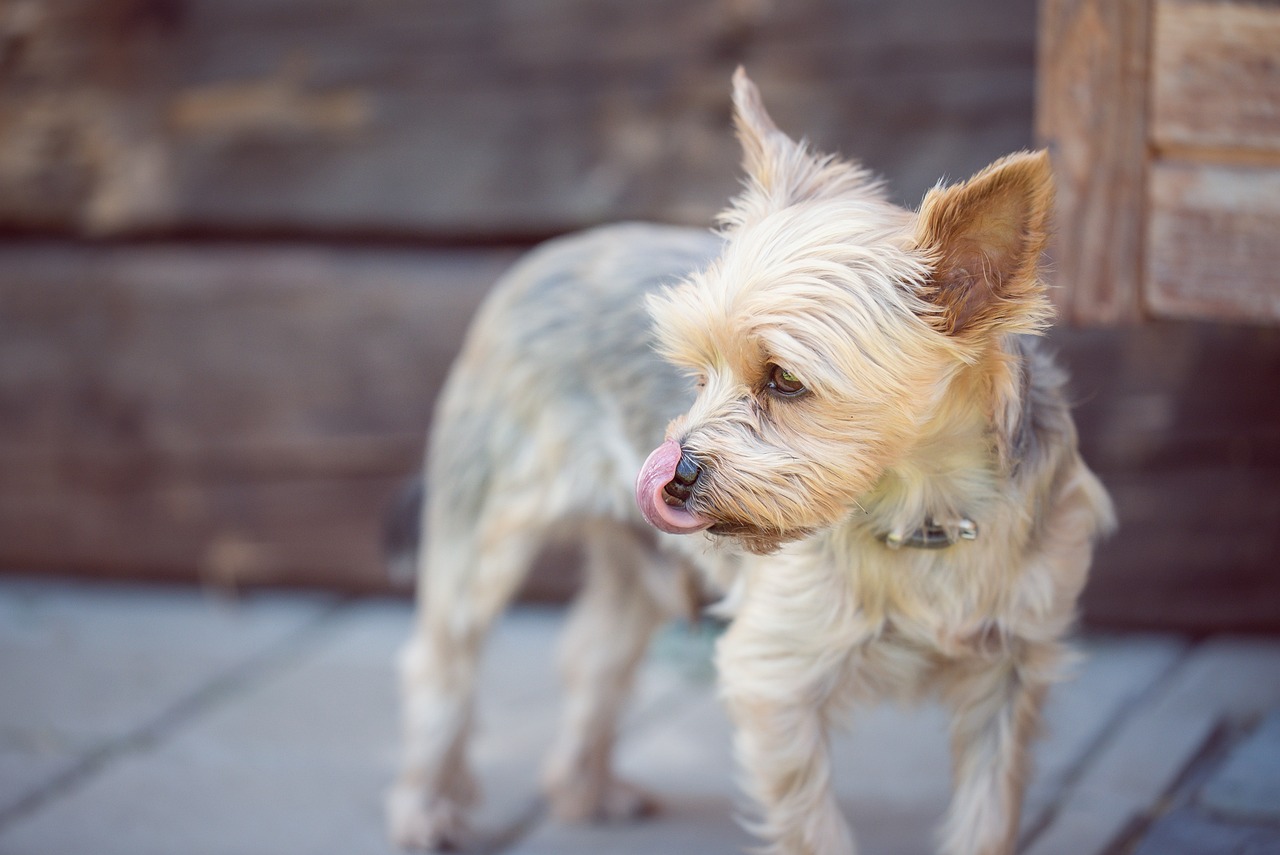
Training and socialization are not just optional when it comes to Yorkshire Terriers; they are absolutely essential for their well-being and development. These little bundles of energy, while incredibly lovable, can also exhibit some challenging behaviors if not properly guided. Think of training as giving your Yorkie a roadmap to navigate the world around them. Without it, they might take a wrong turn into mischief!
Starting early is key. The earlier you introduce your Yorkshire Terrier to various environments, people, and other pets, the more confident and well-adjusted they will become. Imagine a young Yorkie being exposed to different sights, sounds, and smells—this is like opening a treasure chest of experiences that will shape their personality. Not only does this exposure help reduce anxiety, but it also makes them less likely to develop behavioral issues later on.
So, what does effective training look like for a Yorkie? Well, they respond best to positive reinforcement techniques. This means rewarding them with treats, praise, or playtime when they exhibit desired behaviors. For example, if your Yorkie sits on command, a little treat and a hearty “good dog!” will go a long way. Remember, consistency is crucial. The more you practice, the more your Yorkie will understand what you expect from them.
Socialization should also be a fun adventure for your Yorkie. Regular outings to parks, pet-friendly stores, or even doggy daycare provide them with opportunities to meet new friends—both human and canine. These interactions are vital for their emotional health. Just like us, dogs thrive on social connections. You could even consider organizing playdates with other dogs to give them a chance to play and learn from their peers.
As a quick guide, here are some effective socialization tips:
- Start socializing your Yorkie as early as possible, ideally when they are still a puppy.
- Introduce them to a variety of people, including children and strangers.
- Expose them to different environments—busy streets, quiet parks, and bustling markets.
- Encourage interactions with other well-behaved dogs.
In summary, investing time in training and socializing your Yorkshire Terrier will not only help curb their stubbornness but also enhance their overall quality of life. Think of it as building a solid foundation for a beautiful house; without it, everything else may crumble. So, roll up your sleeves and get ready for some rewarding training sessions—your Yorkie will thank you for it!
Q1: How early should I start training my Yorkshire Terrier?
A1: It's best to start training as early as possible, ideally when they are still puppies. Early exposure to training helps them become well-adjusted adults.
Q2: What is the best way to train a Yorkie?
A2: Positive reinforcement is the most effective method. Reward good behavior with treats, praise, or playtime to encourage them to repeat it.
Q3: How can I socialize my Yorkie?
A3: Take your Yorkie on outings to parks, pet stores, and doggy daycare. Encourage interactions with different people and well-behaved dogs to help them gain confidence.
When it comes to training your Yorkshire Terrier, patience and consistency are key. These little bundles of energy are not only spunky but also possess a strong will, which can sometimes translate into stubbornness. However, with the right approach, you can turn this spirited nature into a well-behaved companion. Obedience training is essential for Yorkies, as it not only helps them learn basic commands but also strengthens the bond between you and your furry friend.
One of the most effective methods for training Yorkshire Terriers is using positive reinforcement. This technique involves rewarding your dog for desired behaviors, which encourages them to repeat those actions. Whether it's a tasty treat, a favorite toy, or a simple pat on the head, rewards can motivate your Yorkie to learn commands like "sit," "stay," and "come." Remember, training sessions should be short and fun, ideally lasting no more than 5 to 10 minutes. This keeps your Yorkie's attention and prevents them from becoming bored.
To further enhance the training experience, consider incorporating the following strategies:
- Start Early: Begin training as soon as you bring your Yorkie home. Early exposure to basic commands can set the foundation for a well-mannered adult dog.
- Be Consistent: Use the same commands and gestures each time. Consistency helps your Yorkie understand what you expect from them.
- Stay Positive: Keep the atmosphere light and enjoyable. If your Yorkie struggles with a command, take a break and try again later.
Another important aspect of obedience training is socialization. Exposing your Yorkshire Terrier to various environments, people, and other animals helps them become more adaptable and less anxious. Arrange playdates with other dogs, take them to the park, or simply introduce them to friends and family. The more experiences your Yorkie has, the more confident they will become.
Lastly, remember that every dog is unique. Some Yorkies may take to training like a fish to water, while others might require more time and patience. Celebrate the small victories and keep a positive mindset. With dedication and love, your Yorkshire Terrier can become not just a well-trained dog but also a cherished member of your family.
- How long does it take to train a Yorkshire Terrier? The time it takes to train a Yorkie can vary, but with consistent practice, you can see significant progress within a few weeks.
- What commands should I start with? Begin with basic commands like "sit," "stay," "come," and "leave it." These foundational commands are essential for your dog's safety and good behavior.
- Can I train my Yorkie without professional help? Yes! Many owners successfully train their Yorkies at home using positive reinforcement techniques. However, if you encounter challenges, seeking help from a professional trainer can be beneficial.
Socializing your Yorkshire Terrier is a crucial step in ensuring they grow into a well-adjusted and confident companion. Think of socialization as giving your pup a passport to the world; the more experiences they have, the better they can navigate life. Start early! The earlier you introduce your Yorkie to different people, environments, and other pets, the more comfortable they will become. This is especially important for a breed known for its spirited and sometimes stubborn nature.
When socializing your Yorkie, consider using a variety of settings. For instance, take them to parks, pet-friendly cafes, or even on short trips to the grocery store. Each new experience is an opportunity for them to learn and adapt. Remember, the goal is to expose them to different sights, sounds, and smells without overwhelming them. It’s all about creating positive associations. If your Yorkie seems anxious, don’t force them into situations; instead, take a step back and try again later.
Another effective way to socialize your Yorkie is through playdates with other dogs. This not only helps them learn proper canine etiquette but also provides an outlet for their energy. Choose playmates that are friendly and well-behaved, as this can significantly influence your Yorkie's behavior. Additionally, enrolling in puppy classes can be a fantastic way to meet other dog owners and provide structured socialization in a controlled environment.
Here are some quick tips to keep in mind while socializing your Yorkshire Terrier:
- Start Early: Begin socialization as soon as you bring your Yorkie home.
- Positive Reinforcement: Always reward good behavior with treats or praise.
- Variety is Key: Expose them to different environments, people, and animals.
- Stay Calm: Your Yorkie can sense your emotions, so maintain a relaxed demeanor.
Lastly, remember that socialization is an ongoing process. Even as your Yorkie matures, continue to introduce them to new experiences. This will not only help them develop a balanced personality but also strengthen the bond you share. After all, a well-socialized Yorkie is not just a happy dog; they are a joy to have around, making every day a little brighter!
1. How early should I start socializing my Yorkshire Terrier?
It's best to start socializing your Yorkie as early as possible, ideally between 3 to 14 weeks of age. This is the critical period for socialization, and early exposure can help prevent behavioral issues later on.
2. What if my Yorkie is scared of new experiences?
If your Yorkie shows signs of fear, take it slow. Introduce them gradually to new experiences and always use positive reinforcement. Never force them into a situation; instead, allow them to explore at their own pace.
3. How can I tell if my Yorkie is well-socialized?
A well-socialized Yorkie will be confident in new situations, friendly towards strangers, and able to interact well with other dogs. They should display curiosity rather than fear when faced with new experiences.
4. Are puppy classes beneficial for socialization?
Absolutely! Puppy classes provide a structured environment for socialization and training. They allow your Yorkie to interact with other dogs and people while learning essential commands.
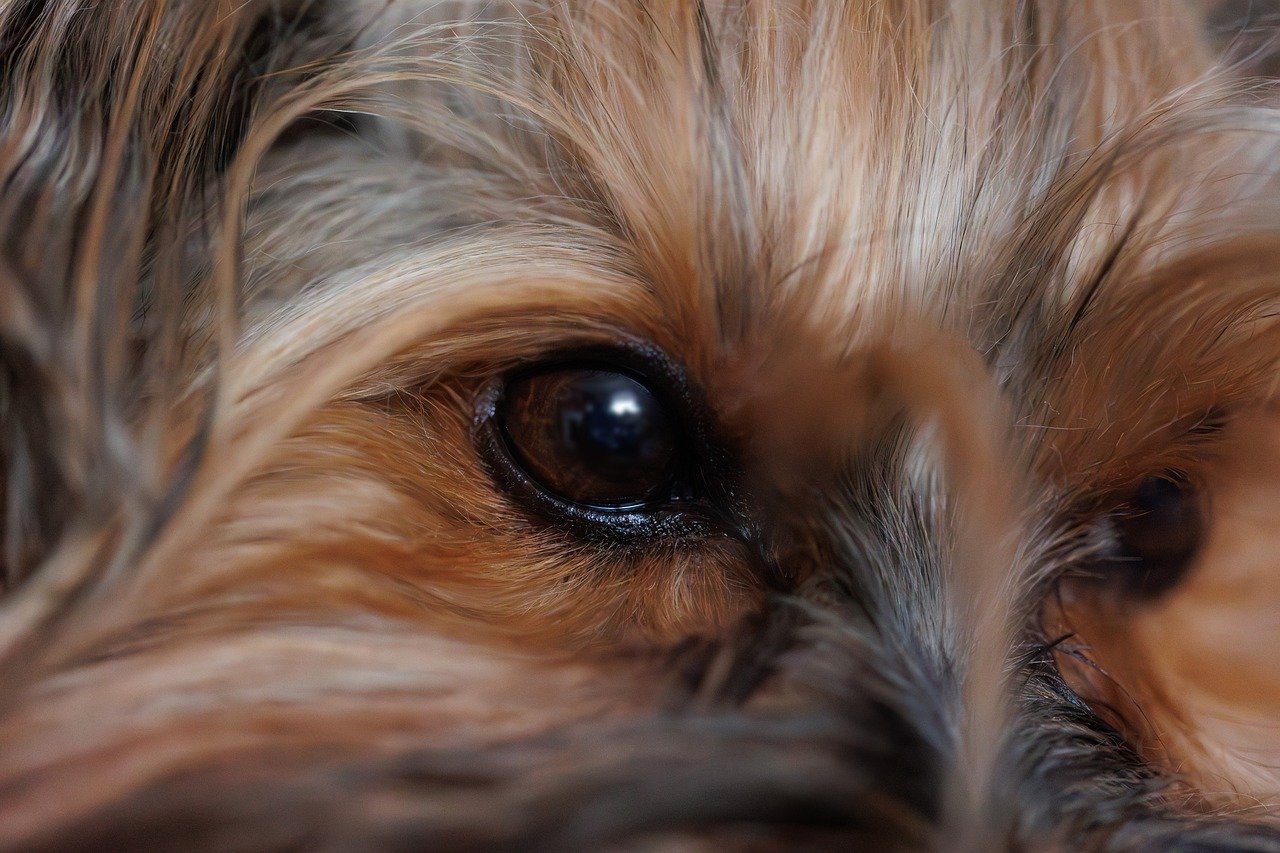
When it comes to the health of your Yorkshire Terrier, being proactive is key. These charming little companions are generally healthy, but like all breeds, they are susceptible to certain health issues that can affect their quality of life. Regular veterinary check-ups are crucial, not just for vaccinations but also for early detection of potential problems. A balanced diet tailored to their specific needs plays a significant role in keeping them fit and vibrant.
One of the most common health concerns among Yorkies is dental problems. Their small mouths can lead to overcrowding of teeth, which increases the risk of plaque buildup, gum disease, and tooth loss. Therefore, routine dental care is essential. Regular brushing, dental chews, and professional cleanings can help maintain their oral health. Additionally, keeping an eye on their weight is important, as obesity can exacerbate dental issues and lead to other health problems.
Another issue that Yorkies may face is patellar luxation, a condition where the kneecap dislocates from its normal position. This can cause pain and difficulty in walking. If you notice your Yorkie limping or favoring a leg, it's important to consult your veterinarian. Early intervention can often lead to better outcomes.
Furthermore, liver shunts are a serious condition where blood bypasses the liver, leading to toxin buildup in the bloodstream. Symptoms can include poor growth, lethargy, and gastrointestinal issues. If you notice any unusual behavior or symptoms in your Yorkie, it's essential to seek veterinary advice promptly.
To ensure your Yorkshire Terrier remains healthy, consider the following preventive care measures:
- Routine dental care to prevent oral diseases.
- Regular veterinary check-ups to monitor health and catch issues early.
- A balanced diet rich in nutrients tailored for small breeds.
- Consistent exercise to maintain a healthy weight and promote overall well-being.
In summary, while Yorkshire Terriers are generally robust, they do require diligent care and attention to their health. By staying informed about their potential health issues and implementing preventive measures, you can help your Yorkie live a long, happy, and healthy life.
- What is the average lifespan of a Yorkshire Terrier?
Yorkshire Terriers typically live between 12 to 15 years, provided they receive proper care.
- How often should I take my Yorkie to the vet?
It's recommended to take your Yorkie for a check-up at least once a year, or more frequently if they have existing health concerns.
- Are Yorkies prone to allergies?
Yes, Yorkshire Terriers can develop allergies, particularly to certain foods or environmental factors. If you notice excessive itching or skin issues, consult your vet.
This article explores the unique characteristics of Yorkshire Terriers, highlighting their personality, behavior, and care needs, making them an ideal choice for many dog lovers.
Yorkshire Terriers are known for their vibrant personalities. They exhibit confidence, intelligence, and a playful nature, making them delightful companions for families and individuals alike.
With their long, silky fur and small stature, Yorkshire Terriers are easily recognizable. Their distinctive appearance contributes to their popularity as both pets and show dogs.
Yorkies are classified as toy dogs, typically weighing between 4 to 7 pounds. Their compact size makes them suitable for apartment living and easy to carry.
The Yorkshire Terrier's coat is a striking blend of blue and tan. Regular grooming is essential to maintain its beauty and prevent matting.
Their large, expressive eyes and erect ears add to their charm. These features enhance their alertness, making them excellent watchdogs despite their size.
Yorkies are known for their spirited behavior. They are often curious, energetic, and can be quite stubborn, requiring consistent training and socialization.
Proper training and socialization are crucial for Yorkshire Terriers. Early exposure to various environments, people, and other pets helps them develop into well-rounded dogs.
Yorkies respond well to positive reinforcement techniques. Consistent training sessions help curb their stubbornness and reinforce good behavior.
Introducing Yorkies to different situations and companions fosters confidence and reduces anxiety. Regular outings and playdates are beneficial for their development.
Yorkshire Terriers are generally healthy, but they are prone to specific health issues. Regular veterinary check-ups and a balanced diet are essential for their well-being.
Just like any other breed, Yorkshire Terriers can face certain health challenges that are important for owners to be aware of. Some of the most common health issues include:
- Dental Problems: Due to their small mouths, Yorkies often suffer from dental issues, including overcrowded teeth and periodontal disease.
- Patellar Luxation: This condition occurs when the kneecap dislocates, which can cause pain and difficulty walking.
- Liver Shunts: This serious condition affects blood flow to the liver, leading to various health complications if not treated.
Being informed about these potential issues can help you take proactive steps in your Yorkie's care. Regular veterinary visits are crucial for early detection and management of these conditions. For instance, dental check-ups should be a part of your routine to prevent severe dental disease. Moreover, maintaining a healthy weight can reduce the risk of patellar luxation.
Routine dental care, vaccinations, and a nutritious diet contribute to a Yorkshire Terrier's longevity. Regular exercise is also vital for maintaining their physical health.
Q: How often should I groom my Yorkshire Terrier?
A: Ideally, you should groom your Yorkie at least once a week to prevent matting and keep their coat healthy.
Q: Are Yorkshire Terriers good with children?
A: Yes, they can be good with children, but supervision is essential, especially with younger kids, due to their small size.
Q: What is the average lifespan of a Yorkshire Terrier?
A: On average, Yorkies live between 12 to 15 years, but with proper care, some can live even longer.
When it comes to keeping your Yorkshire Terrier in tip-top shape, preventive care is absolutely essential. Just like us, our furry friends need regular check-ups and a little TLC to ensure they stay healthy and happy. Think of it as a routine maintenance schedule for your beloved companion. Regular veterinary visits can help catch potential health issues before they become serious problems, allowing you to address them swiftly. This proactive approach not only enhances their quality of life but also extends their lifespan.
One of the most crucial aspects of preventive care is dental health. Yorkshire Terriers are particularly prone to dental problems due to their small mouths and crowded teeth. It's vital to incorporate routine dental check-ups and cleanings into their healthcare regimen. Additionally, brushing their teeth at home can significantly reduce the risk of periodontal disease. You might think, "Brushing a dog's teeth? Really?" But just like how we wouldn't skip brushing our own teeth, our Yorkies deserve the same attention!
Another key component of preventive care is ensuring your Yorkie receives all the necessary vaccinations. Vaccines protect them from serious diseases, and keeping their shots up to date is a simple yet effective way to safeguard their health. Consult with your veterinarian to create a vaccination schedule tailored to your Yorkie's specific needs.
Nutrition plays a pivotal role in preventive care as well. Providing a nutritious diet that meets all their dietary requirements is essential for maintaining their overall health. A balanced diet rich in proteins, healthy fats, and essential vitamins will help keep your Yorkie energetic and vibrant. Don't hesitate to ask your vet for recommendations on the best food options for your little buddy.
Lastly, regular exercise is a must! While Yorkies may be small, they have a ton of energy to burn. Daily walks and playtime not only help maintain a healthy weight but also contribute to their mental stimulation. A tired Yorkie is a happy Yorkie! To give you an idea of how much exercise they need, consider this:
| Activity | Frequency | Duration |
|---|---|---|
| Walks | Daily | 20-30 minutes |
| Playtime | Daily | 15-20 minutes |
| Training Sessions | 3-4 times a week | 5-10 minutes each |
In conclusion, preventive care is all about being proactive rather than reactive. By focusing on dental health, vaccinations, nutrition, and exercise, you can ensure that your Yorkshire Terrier leads a long, healthy, and happy life. Remember, a little effort goes a long way in keeping your furry friend by your side for years to come!
- How often should I take my Yorkie to the vet?
It's recommended to schedule a vet visit at least once a year for a general health check-up. - What kind of food should I feed my Yorkshire Terrier?
Look for high-quality dog food that lists meat as the first ingredient and is appropriate for their size and age. - How can I keep my Yorkie's teeth clean?
Regular brushing, dental chews, and professional cleanings are great ways to maintain your Yorkie's dental health. - Do Yorkies need a lot of exercise?
Yes! Despite their small size, they require daily exercise to stay healthy and happy.
Frequently Asked Questions
- What is the typical temperament of a Yorkshire Terrier?
Yorkshire Terriers are known for their vibrant and spunky personalities. They are confident, intelligent, and playful, making them excellent companions for families and individuals. Their spirited nature often leads them to be curious and energetic, which can sometimes come off as stubbornness.
- How much exercise does a Yorkshire Terrier need?
Despite their small size, Yorkies are energetic dogs that require regular exercise. Daily walks and playtime are essential to keep them healthy and happy. A good rule of thumb is to provide at least 30 minutes of activity each day to match their playful spirit.
- Are Yorkshire Terriers good for apartment living?
Absolutely! Yorkshire Terriers are well-suited for apartment living due to their small size and low exercise requirements. They adapt well to smaller spaces as long as they receive enough mental and physical stimulation.
- How often should I groom my Yorkshire Terrier?
Regular grooming is crucial for maintaining the beauty of a Yorkshire Terrier's long, silky coat. Ideally, you should brush their fur every day to prevent matting and tangles. Professional grooming every 4 to 6 weeks is also recommended to keep their coat in top condition.
- What are common health issues in Yorkshire Terriers?
Yorkshire Terriers can be prone to certain health issues, including dental problems, patellar luxation, and liver shunts. Regular veterinary check-ups and a balanced diet can help manage these conditions effectively and ensure a long, healthy life.
- How can I train my Yorkshire Terrier effectively?
Positive reinforcement techniques work wonders with Yorkshire Terriers. Consistent training sessions using treats and praise can help curb their stubbornness and reinforce good behavior. Early socialization and exposure to various environments are also key to developing a well-rounded dog.
- Do Yorkshire Terriers get along with other pets?
Yorkies can get along well with other pets if properly socialized from a young age. Introducing them to different animals and environments can foster confidence and reduce anxiety, making them more adaptable companions.

